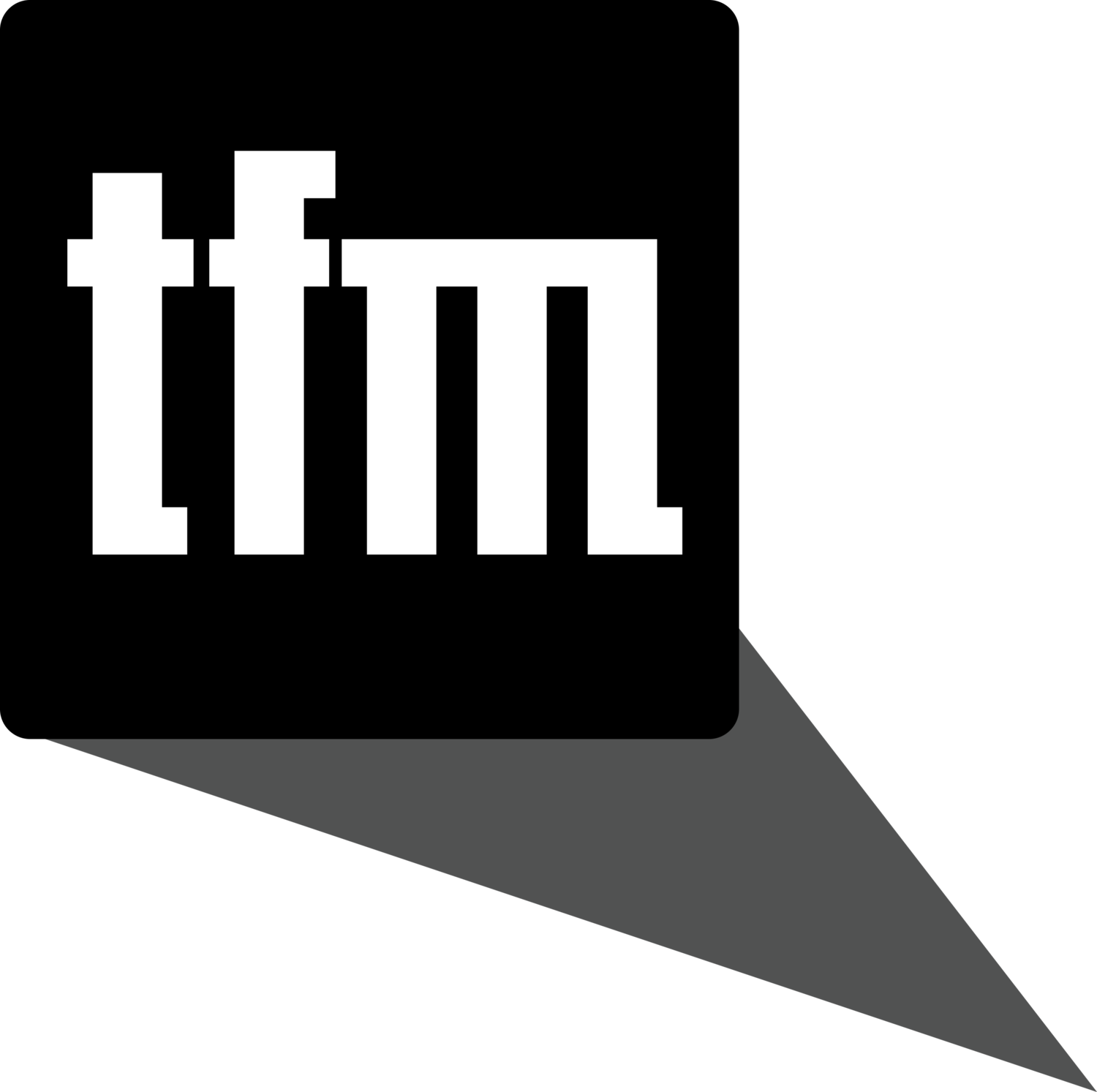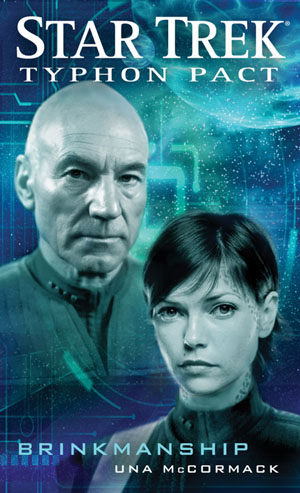by Matthew Rushing
In October 1962, the United States and the Soviet Union spent 13 arduous days dancing on the edge of World War III. Little trust existed on either side. The Federation and her allies face the same situation in Brinkmanship by Uma McCormack. The Tzenkethi seem to be actively using the Venetans and their starbases as a general quarters, the staging ground for war with the Federation. Venetan space and its starbases are on borders of three different Khitomer powers: the Federation, the Ferengi and the Cardassians. What ensues is a nail-biting tale of point and counterpoint that may lead to another Armageddon.
McCormack does an excellent job of bringing insight into one for the most underdeveloped races in Star Trek. The Tzenkethi have never before been so deeply explored and their society been brought to life in such vivid fashion. They are a genetically modified caste people. Each caste has its purpose and they experience no growth beyond that purpose. Some would see this as slavery. Others see it as freedom. This is one of the interesting philosophical questions that McCormack debates through two characters who never meet in the story.
Maymi, a Cardassian spy on Ab-Tzenketh (the Tzenkethi homeworld) has become enthralled with the order and rigidity of the Tzenkethi way of life. She even thinks to herself, “I wish I could switch myself off entirely, give myself over fully to this life. No more worries. Only do what I was told, day after day, never have to think again because I know someone is thinking for me…. She would be free to live among her beloved Tzenkethi, and she would never have to worry about anything again.” Some people are drawn toward this kind of existence, a freedom from having to be anything but what one has been programed to be and nothing more.
Peter Alden, an old friend of Dax’s from the Academy, works with Starfleet Intelligence and has previously Been undercover on Ab-Tzenketh. He abhors the Tzenkethi way of life and believes it amounts to little more than slavery. As he and Dax talk, he shares with her his feelings: “Did you know that there’s a caste of Tzenkethi bred not to speak? Can you believe that? The scientists decided that they didn’t need to speak in order to perform their functions. They’re the sick ones. It’s a sick society, a wrong society, a bad society. We’re right to oppose them and we’re right to hate them.” It is a clash of ideologies and worldviews on display. Alden explains the clash as he tells Dax why the Tzenkethi fear the Federation so much. “Because to the Tzenkethi, the Federation is chaos personified — their worst nightmare. Their greatest fear. What are we, after all? An unruly mishmash of people, all shouting out noisily in our own voices, all bringing our own particular culture to the mix. For the Tzenkethi, it’s the monster under the bed.”
Who Can You Trust?
The Vulcan ideology of “infinite diversity in infinite combinations” is immensely challenging when put into practice. Like the United States and Soviet Union in the Cold War, the Khitomer Alliance and the Typhon Pact are both operating out of fear. They fear losing themselves and their way of life to something that they do not understand. A sea of mistrust swirls between them that continually churns as mistrust begets more mistrust. The question for everyone in this book is, “Who can you trust?” Galactic powers, friends and allies are all put to the test. Furthermore, how do you build a foundation of trust with a group or people that has historically been at complete odds with you? The answer: One small step at a time. Dax says, “….while we’re watching our backs, we’re got to hope that we’ll be surprised — and in the best way possible. We’ve got to hope…” Looking for the best in an enemy isn’t easy, but without the hope of something better, the status quo is all that is fostered.
“We’ve been beaten back and battered for so long now, Crusher thought. War after war, the Andorian secession….We should try to remember what’s good about us, about our way of life, even when we’re low ebb. Because if we don’t care any longer, why should anyone else?”
Beverly’s thought sums up the last major theme of this book: identity. The Federation faces a crisis of identity. Andor has seceded, while Cardassia and Feranginar have joined. The Dominion and the Borg have wrecked havoc and decimated Starfleet, leaving a struggling fleet to protect and repair the worlds that are left. Exploration and peace are the farthest thing on anyone’s mind due to survival becoming the modus operandi. How can a society regain its position in the galaxy (or just the world, in present day) after such horrible and disheartening events? The answer the book gives is that the Federation must believe in itself and its way of life, as well as hope for the best, even in its enemies, while never undervaluing the power of friendship. While Dax speaks to one of the Venetan people that she has met and befriended, Heldon says to her, “Life is uncertain, Dax. But we can choose how to live with that uncertainty…My best wishes to you. I hope you pass this way again in more certain times. I hope we have the opportunity to meet in friendship.” It is through the choice of loosening one’s grip on fear that the freedom to hope and befriend those once considered enemies in the past will prevail. Crusher sums it up well at the end of the book: “Crusher silently saluted Madame Ilka. To friendship, she thought. To difference. To Trust.”
Leading Ladies
The female characters clearly stand out in this book. Beverly Crusher should have been on the cover with Dax instead of Picard. This book features one of the strongest Crusher storylines in a long while, and it is refreshing that McCormack gives her something to do while giving her some well earned growth. With the recent return of Janeway, the Star Trek universe has no lack of strong women. Dax, Crusher and the Ferengi diplomat Ilka steal the show and really shine. It is refreshing to see the women of Star Trek get this kind of time in the spotlight. So many times they are often pushed aside for the male characters, and to the detriment of the story. McCormack makes great use of them here and should be commended for making them more rounded and integral characters to the story.
Final Thoughts
This book moves the story of the Typhon Pact series forward well, giving some often sideline characters the spotlight, therefore the rating is warp 8 out of a possible Warp 9.99.



